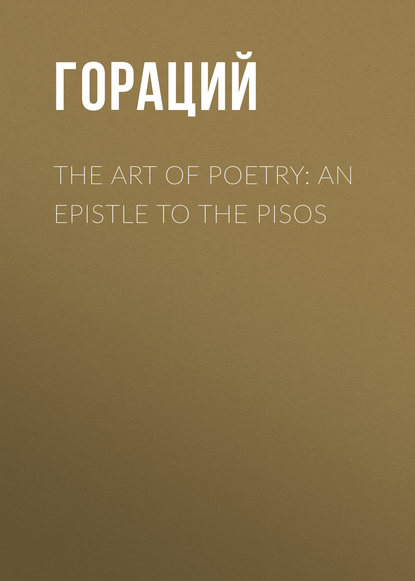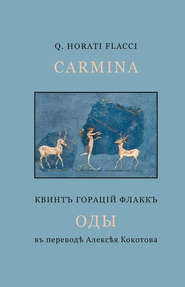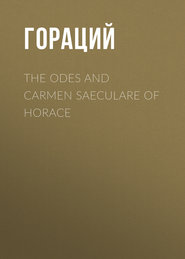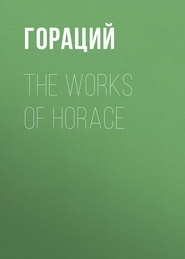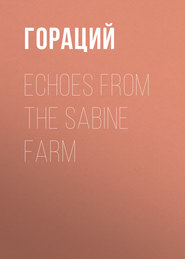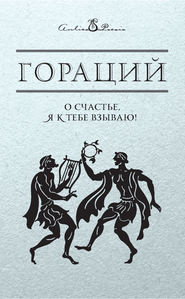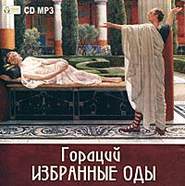По всем вопросам обращайтесь на: info@litportal.ru
(©) 2003-2024.
✖
The Art of Poetry: an Epistle to the Pisos
Настройки чтения
Размер шрифта
Высота строк
Поля
A Robe devis'd, to give the person grace;
On humble rafters rais'd a Stage, and taught
The buskin'd actor, with his spirit fraught,
To breathe with dignity the lofty thought.
To these th' old comedy of ancient days
Succeeded, and obtained no little praise;
'Till Liberty, grown rank and run to seed,
Call'd for the hand of Law to pluck the weed:
The Statute past; the sland'rous Chorus, drown'd
In shameful silence, lost the pow'r to wound.
Nothing have Roman Poets left untried,
Nor added little to their Country's pride;
Daring their Graecian Masters to forsake,
And for their themes Domestick Glories take;
Whether the Gown prescrib'd a stile more mean,
Or the Inwoven Purple rais'd the scene:
Nor would the splendour of the Latian name
From arms, than Letters, boast a brighter fame,
Quemque poëtarum limae labor et mora. Vos ô
Pompilius sanguis, carmen reprehendite, quod non
Multa dies et multa litura coërcuit, atque
Praesectum decies non castigavit ad unguem.
Ingenium miserâ quia fortunatius arte
Credit, et excludit sanos Helicone poëtas
Democritus; bona pars non ungues ponere curat,
Non barbam, secreta petit loca, balnea vitat;
Nanciscetur enim pretium nomenque poëtae,
Si tribus Anticyris caput insanabile numquam
Tonsori Licino commiserit. O ego laevus,
Qui purgor bilem sub verni temporis horam!
Non alius faceret meliora poëmata: verum
Had they not, scorning the laborious file,
Grudg'd time, to mellow and refine their stile.
But you, bright hopes of the Pompilian Blood,
Never the verse approve and hold as good,
'Till many a day, and many a blot has wrought
The polish'd work, and chasten'd ev'ry thought,
By tenfold labour to perfection brought!
Because Democritus thinks wretched Art
Too mean with Genius to sustain a part,
To Helicon allowing no pretence,
'Till the mad bard has lost all common sense;
Many there are, their nails who will not pare,
Or trim their beards, or bathe, or take the air:
For he, no doubt, must be a bard renown'd,
That head with deathless laurel must be crown'd,
Tho' past the pow'r of Hellebore insane,
Which no vile Cutberd's razor'd hands profane.
Ah luckless I, each spring that purge the bile!
Or who'd write better? but 'tis scarce worth while:
Nil tanti est: ergo fungar vice cotis, acutum
Reddere quae ferrum valet, exsors ipsa secandi.
Munus et officium, nil scribens ipse, docebo;
Unde parentur opes; quid alat formetque poëtam;
Quid deceat, quid non; quò virtus, quò ferat error,
Scribendi rectè, sapere est et principium et fons.
Rem tibi Socraticae poterunt ostendere chartae;
Verbaque provisam rem non invita sequentur.
Qui didicit patriae quid debeat, et quid amicis;
Quo fit amore parens, quo frater amandus et hospes;
Quod fit conscripti, quod judicis officium; quae
Partes in bellum missi ducis; ille profectò
Reddere personae scit convenientia cuique.
So as mere hone, my services I pledge;
Edgeless itself, it gives the steel an edge:
No writer I, to writers thus impart
The nature and the duty of their art:
Whence springs the fund; what forms the bard, to know;
What nourishes his pow'rs, and makes them grow;
What's fit or unfit; whither genius tends;
And where fond ignorance and dulness ends.
In Wisdom, Moral Wisdom, to excell,
Is the chief cause and spring of writing well.
Draw elements from the Socratick source,
And, full of matter, words will rise of course.
He who hath learnt a patriot's glorious flame;
What friendship asks; what filial duties claim;
The ties of blood; and secret links that bind
The heart to strangers, and to all mankind;
The Senator's, the Judge's peaceful care,
And sterner duties of the Chief in war!
These who hath studied well, will all engage
In functions suited to their rank and age.
Respicere exemplar vitae morumque jubebo
Doctum imitatorem, et veras hinc ducere voces.
Interdum speciosa locis, morataque rectè
Fabula, nullius veneris, sine pondere et arte,
Valdius oblectat populum, meliusque moratur,
Quam versus inopes rerum, nugaeque canorae.
Graiis ingenium, Graiis dedit ore rotundo
Musa loqui, praeter laudem, nullius avaris.
Romani pueri longis rationibus assem
Discunt in partes centum diducere. Dicat
Filius Albini, si de quincunce remota est
Uncia, quid superet? poteras dixisse, triens. Eu!
On humble rafters rais'd a Stage, and taught
The buskin'd actor, with his spirit fraught,
To breathe with dignity the lofty thought.
To these th' old comedy of ancient days
Succeeded, and obtained no little praise;
'Till Liberty, grown rank and run to seed,
Call'd for the hand of Law to pluck the weed:
The Statute past; the sland'rous Chorus, drown'd
In shameful silence, lost the pow'r to wound.
Nothing have Roman Poets left untried,
Nor added little to their Country's pride;
Daring their Graecian Masters to forsake,
And for their themes Domestick Glories take;
Whether the Gown prescrib'd a stile more mean,
Or the Inwoven Purple rais'd the scene:
Nor would the splendour of the Latian name
From arms, than Letters, boast a brighter fame,
Quemque poëtarum limae labor et mora. Vos ô
Pompilius sanguis, carmen reprehendite, quod non
Multa dies et multa litura coërcuit, atque
Praesectum decies non castigavit ad unguem.
Ingenium miserâ quia fortunatius arte
Credit, et excludit sanos Helicone poëtas
Democritus; bona pars non ungues ponere curat,
Non barbam, secreta petit loca, balnea vitat;
Nanciscetur enim pretium nomenque poëtae,
Si tribus Anticyris caput insanabile numquam
Tonsori Licino commiserit. O ego laevus,
Qui purgor bilem sub verni temporis horam!
Non alius faceret meliora poëmata: verum
Had they not, scorning the laborious file,
Grudg'd time, to mellow and refine their stile.
But you, bright hopes of the Pompilian Blood,
Never the verse approve and hold as good,
'Till many a day, and many a blot has wrought
The polish'd work, and chasten'd ev'ry thought,
By tenfold labour to perfection brought!
Because Democritus thinks wretched Art
Too mean with Genius to sustain a part,
To Helicon allowing no pretence,
'Till the mad bard has lost all common sense;
Many there are, their nails who will not pare,
Or trim their beards, or bathe, or take the air:
For he, no doubt, must be a bard renown'd,
That head with deathless laurel must be crown'd,
Tho' past the pow'r of Hellebore insane,
Which no vile Cutberd's razor'd hands profane.
Ah luckless I, each spring that purge the bile!
Or who'd write better? but 'tis scarce worth while:
Nil tanti est: ergo fungar vice cotis, acutum
Reddere quae ferrum valet, exsors ipsa secandi.
Munus et officium, nil scribens ipse, docebo;
Unde parentur opes; quid alat formetque poëtam;
Quid deceat, quid non; quò virtus, quò ferat error,
Scribendi rectè, sapere est et principium et fons.
Rem tibi Socraticae poterunt ostendere chartae;
Verbaque provisam rem non invita sequentur.
Qui didicit patriae quid debeat, et quid amicis;
Quo fit amore parens, quo frater amandus et hospes;
Quod fit conscripti, quod judicis officium; quae
Partes in bellum missi ducis; ille profectò
Reddere personae scit convenientia cuique.
So as mere hone, my services I pledge;
Edgeless itself, it gives the steel an edge:
No writer I, to writers thus impart
The nature and the duty of their art:
Whence springs the fund; what forms the bard, to know;
What nourishes his pow'rs, and makes them grow;
What's fit or unfit; whither genius tends;
And where fond ignorance and dulness ends.
In Wisdom, Moral Wisdom, to excell,
Is the chief cause and spring of writing well.
Draw elements from the Socratick source,
And, full of matter, words will rise of course.
He who hath learnt a patriot's glorious flame;
What friendship asks; what filial duties claim;
The ties of blood; and secret links that bind
The heart to strangers, and to all mankind;
The Senator's, the Judge's peaceful care,
And sterner duties of the Chief in war!
These who hath studied well, will all engage
In functions suited to their rank and age.
Respicere exemplar vitae morumque jubebo
Doctum imitatorem, et veras hinc ducere voces.
Interdum speciosa locis, morataque rectè
Fabula, nullius veneris, sine pondere et arte,
Valdius oblectat populum, meliusque moratur,
Quam versus inopes rerum, nugaeque canorae.
Graiis ingenium, Graiis dedit ore rotundo
Musa loqui, praeter laudem, nullius avaris.
Romani pueri longis rationibus assem
Discunt in partes centum diducere. Dicat
Filius Albini, si de quincunce remota est
Uncia, quid superet? poteras dixisse, triens. Eu!
Другие электронные книги автора Квинт Гораций Флакк
Другие аудиокниги автора Квинт Гораций Флакк
Избранные оды




 4.67
4.67





